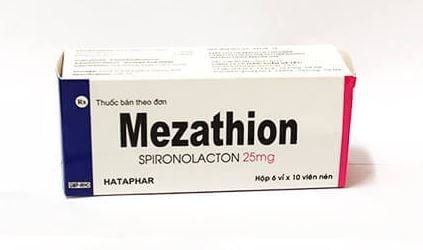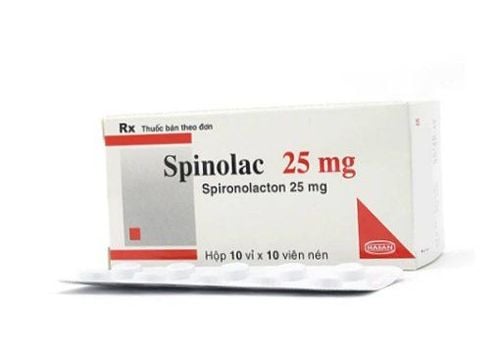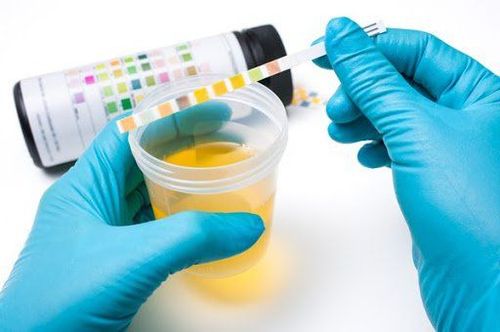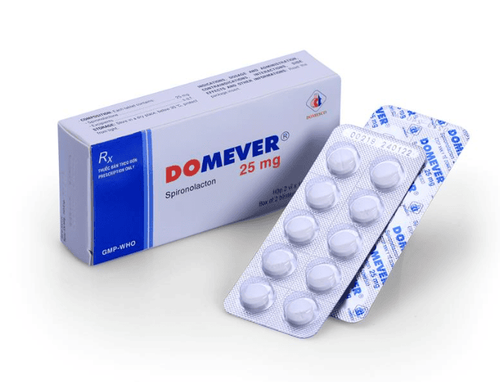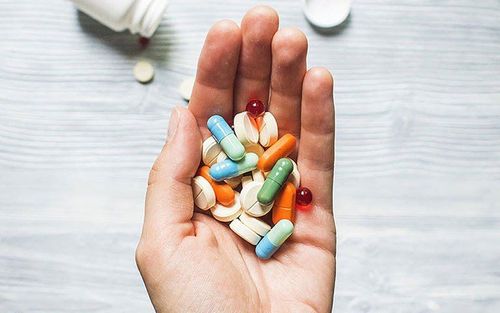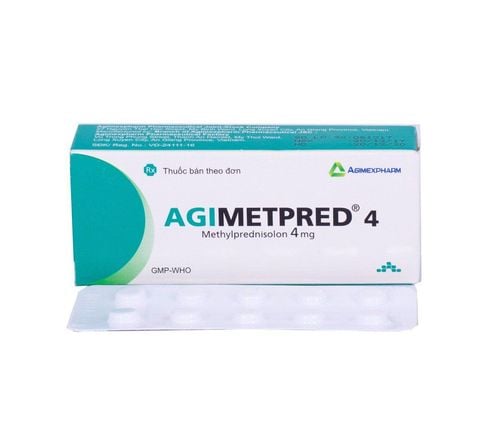This is an automatically translated article.
The article was professionally consulted by Master, Doctor Nguyen Thi Thanh Thuy - Endocrinologist - Dialysis - Kidney Transplant - Department of Medical Examination & Internal Medicine - Vinmec Central Park International General Hospital.Nephrotic syndrome is a common condition, but its treatment is complex. Treatment of nephrotic syndrome requires good control of the symptoms of the disease, treating the underlying cause, and avoiding drug complications.
1. What is nephrotic syndrome?
Kidneys are organs of the urinary system, the main function of the kidneys is to filter blood for the body, to remove harmful substances in the blood out through the urine. After the blood has been filtered through the kidneys, it will return to other organs in the body, creating a circulation.Nephrotic syndrome is a syndrome that occurs when there is an inflammatory lesion in the glomeruli. The nephrotic syndrome is characterized by edema, high proteinuria, decreased blood protein levels, dyslipidemia, and possibly fatty urine.
Nephrotic syndrome most often has no clear cause. The main treatment drug is immunosuppressive drugs, the level of response depends on the type of glomerular injury and side effects increase with prolonged use. However, patients need to follow the doctor's treatment regimen and report unwanted side effects so that the doctor can adjust the prescription to achieve the treatment goal.
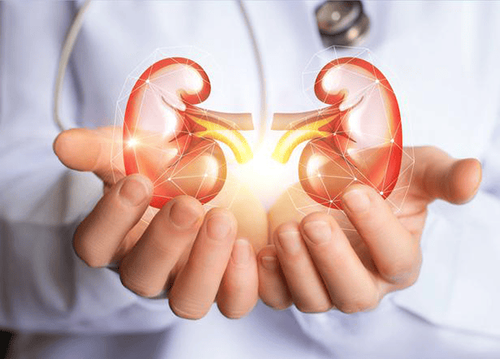
Hội chứng thận hư xuất hiện khi chức năng thận bị suy yếu
2. What is the main goal of treatment for nephrotic syndrome?
2.1 Reducing edema Edema in nephrotic syndrome is a very characteristic form of edema. Patients may have generalized edema, soft edema, concave hand press. The most commonly seen is edema in the face, edema in the eye sockets making it difficult to open the eyes, edema in front of the legs, edema in the empty spaces of the body such as the peritoneal cavity, the pleural cavity.2.2 Reduce the loss of protein in the urine The loss of protein in the urine can be considered the cause of all disorders such as: edema, easy bleeding, infection... The treatment of proteinuria is very important to Inhibits protein passing through the urine, retains protein and aids in the fight against edema.
2.3 Reducing glomerular inflammation This is considered the ultimate and ultimate goal in the treatment of nephrotic syndrome. When the inflammation in the glomerulus is resolved, it will solve all the disorders. Reducing inflammation in the glomeruli is not using anti-inflammatory drugs to treat it, but must be used according to immunosuppressive therapy, also known as corticosteroid therapy.
Other therapeutic agents only help meet small and individual goals in each case. Treatment depends on the specific condition of the patient.
3. Note when treating nephrotic syndrome
3.1 Notes when using corticosteroid therapy Patients with primary nephrotic syndrome are often treated with corticosteroids. The most commonly used corticosteroid therapy is prednisolone, maintained for 12 to 20 weeks, maintenance therapy during this period usually resolves the disease.However, nephrotic syndrome is a disease in which the patient has to bear the severe side effects of corticosteroids. Because corticosteroid doses are usually quite high, the treatment time is prolonged, leading to water retention, edema, round face like the moon, and redness, these are the most obvious side effects. In addition, osteoporosis or fracture, peptic ulcer, electrolyte disturbance are the next features to watch out for. Women treated for nephrotic syndrome may experience virilization, mood changes, rough skin...
To use corticosteroids safely, during the treatment period, the patient should eat light foods. diuretics such as vegetables to reduce edema, avoid spicy foods to limit harm to the stomach, it is suggested to drink corn silk juice instead of filtered water daily to support the treatment of the disease. Patients should note that corticosteroids should be taken with food or after meals, not on an empty stomach and should be taken after 8 am.
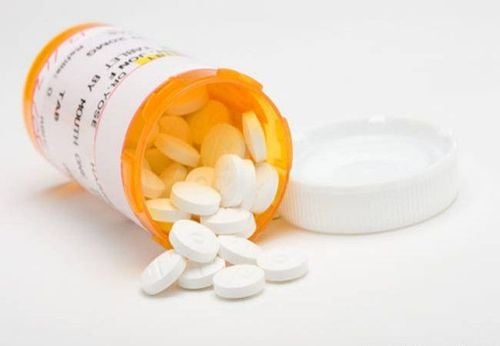
Corticoid gây ra nhiều tác dụng phụ nghiêm trọng cho người bệnh
Cyclophosphamide: can be anemic due to bone marrow failure, easy to lose hair, easy to infect with parasites, cause cancer, cause mutations and possibly cause infertility. Cyclosporine: Note that the typical complications of this drug are: hair growth, hair loss, excessive gingival enlargement (very typical and easy to see). Rituximab is an effective agent in some conditions resistant to prednisolone. This is an antibody against B lymphocyte CD20 antigen, which has strong immunosuppressive capacity. It is best when taking immunosuppressive drugs is to build a diet rich in diuretics, helping to quickly eliminate drugs. Do not take the accompanying herbal medicine. Note, during the time of taking the drug, the patient is very susceptible to infection, so it is necessary to avoid injuries to avoid skin infection, because the patient's body's ability to heal and fight infection after taking the drug is very poor. .
3.3 Note when using diuretics Two commonly used diuretics are furosemide and spironolactone. Regardless of the cause of the edema, diuretics have quick and immediate effects. However, note that diuretics should not be used too close together because it will cause too much water loss, disturbance of water and electrolyte balance. Specifically, do not take 2 consecutive doses within 6-8 hours.
When taking diuretics, the patient must eat lightly and should not take the drug in the evening to avoid insomnia. When the patient has allergies, cramps, dehydration and excessive electrolytes that cause excessive dryness of the lips and mouth, then the dose of the drug should be reduced because the body is excreting excessive water. Because of this, do not arbitrarily use high-dose diuretics because they can cause water and electrolyte disturbances secondary.
3.3 Note when using ACE inhibitors and angiotensin II receptor blockers ACE inhibitors such as lisinopril, captopril... and angiotensin II receptor blockers such as valsartan, losartan... are not only used for antihypertensive effect but also has the ability to reduce the loss of protein through the urine, especially lisinopril has a very clear effect.
Trials have shown that taking lisinopril and some ACE inhibitors can help reduce protein levels in the urine fairly well. The extent of the reduction depends on the dose used, but usually 30-80% reduction in proteinuria.
The side effect of ACE inhibitors can be cough, especially in the elderly. If the drug experiences severe cough side effects, it should be discontinued and replaced with an angiotensin II receptor blocker.
Some other side effects to watch out for are headache, dizziness, fatigue, drug allergy, difficulty breathing, chest pain, arrhythmia, hepatitis, vomiting, nausea, itching, fever, difficulty breathing, Chest tightness should stop the drug and go to the hospital to be checked, most likely an acute reaction is occurring (however very rare).
During treatment with these drug groups, patients should not do heavy exercise, should not run, jump or exercise because strong activities will make the kidneys work more, leading to muscle movements. Strong studies cause more damage to the kidneys, the more protein is excreted in the urine. Patients should conduct regular proteinuria tests, once every 3 days to be adjusted to reduce the dose as soon as possible.

Các thuốc ức chế men chuyển có thể gây ho ở người cao tuổi
4. Doctor's advice when treating nephrotic syndrome
Patients need to follow the doctor's instructions and develop a scientific lifestyle on their own. Limit fat, eat less fat like eggs, milk, lean meat. Absolutely abstain from using salt, main noodles, fish sauce, soy sauce... in meals. It is necessary to drink enough 2 liters of water / day. Vitamin and mineral supplements from fruits and vegetables and calcium-rich foods should be added to the diet. Medicines (corticoids, diuretics, antibiotics, pain relievers...) must be used properly. Medicines, if used in the right dosage and indications, will help the disease improve quickly, helping to shorten the treatment time. Do not smoke, drink alcohol or other stimulants. Master. Doctor. Nguyen Thi Thanh Thuy is a nephrologist with more than 15 years of experience in diagnosing and treating medical kidney disease, hemodialysis, peritoneal dialysis, pre-transplant screening and post-transplant monitoring. Currently, Dr. Thuy is working at the Department of General Internal Medicine - Vinmec Central Park International General Hospital.Please dial HOTLINE for more information or register for an appointment HERE. Download MyVinmec app to make appointments faster and to manage your bookings easily.




